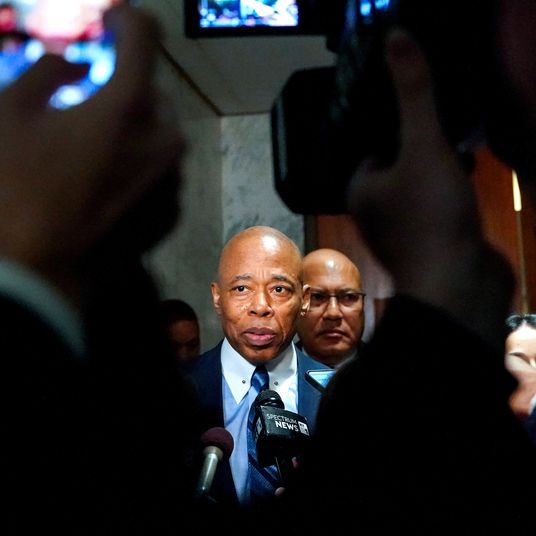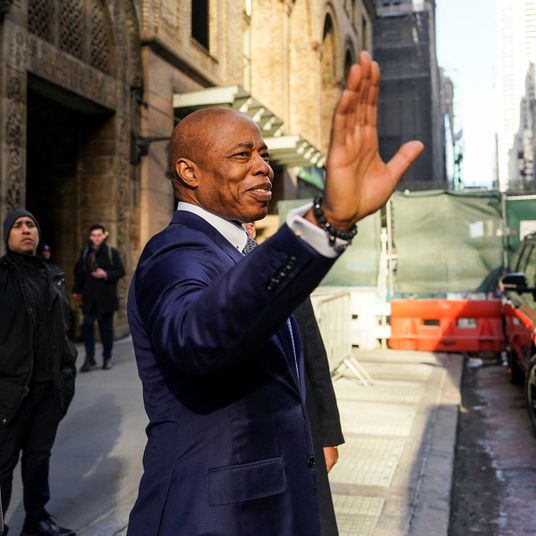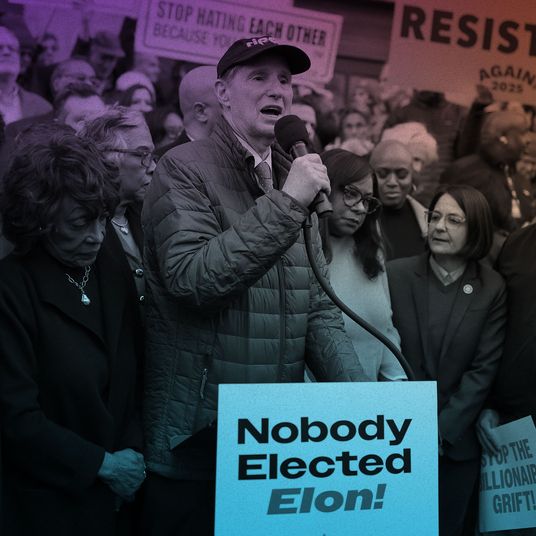
Before the president’s big “tax speech” in Missouri today, it was widely observed that he would not be very specific in what, precisely, he was proposing.
Was that ever accurate! Despite frequently demanding (his term) that every member of Congress support him on taxes, and making a very specific threat to Missouri’s Democratic senator Claire McCaskill that she get onboard this particular Trump Train, the president didn’t propose much of anything in particular other than lower taxes for corporations and middle-class folk alike, and a paradise of booming economic indicators — expanding jobs, repatriated capital, and America First.
But it’s not just the absence of tax-policy specificity that makes this speech a real nothingburger, Trump did not say a single word about the budgetary assumptions underlying his “thinking” on taxes, which also happen to provide its legislative context. So it’s a double nothingburger.
Even though he talked quite a bit about getting rid of tax “loopholes,” it was 100 percent from the perspective of simplifying the tax code. If doing so would also raise revenues to help pay for the vast tax cuts Trump seems to be contemplating, you would not know it from this speech.
More to the point, there almost certainly will not be any tax cuts unless an FY 2018 budget resolution is first passed to make it possible for Republicans to work their will on the tax code by a simple majority (even if Trump wants to keep pressure up on Democrats like McCaskill to play ball, it’s almost certainly as a hedge against losing a few Republicans like he did on health care. There is no foreseeable tax bill that can win 60 Senate votes). A budget resolution will have to make certain assumptions about projected spending and revenues, within which the tax bill’s provision would have to comply for the next ten years. A lot of Republicans want to include mandated domestic spending cuts in part to further “pay for” tax cuts, and in part because they like them as an end in themselves. Some Republicans genuinely want offsets to tax cuts within the tax code. Others don’t give a damn about the budget consequences, and/or prefer to wish them away via insanely optimistic revenue estimates. And if tax cuts increase the budget deficit, they will probably have to be temporary, which is rather a big deal.
Now, it’s entirely possible Trump avoided mentioning the very existence of a budget process in his Missouri speech because all the above questions currently divide members of his own party, and haven’t been even remotely resolved at this point. But if he has to avoid everything specific about how, exactly, his tax-cut dreams will be designed and enacted, then why make the speech? It raised more questions than it answered, and perhaps raised expectations dangerously among the supporters who had no idea how many key issues he evaded. If he keeps this up, we might as well all pretend that he’s proposed a specific tax bill, which has already been enacted, making America great again! That would be just as accurate as his description of an imaginary tax bill today.






























